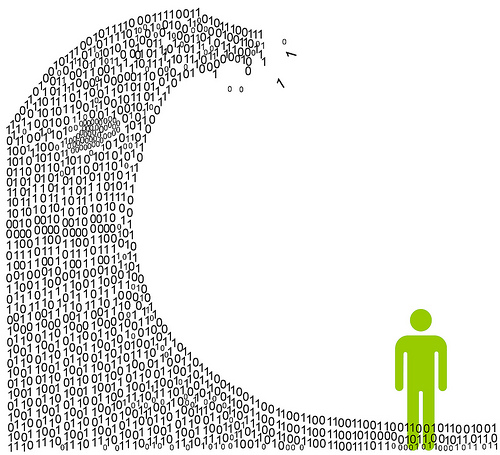
Social Implications of Computer Technology
CS 195, Spring 2021
Course Description and Policies
CS 195 is a discussion-intensive course about the social implications of computer technology. The purpose of this course is to help students make informed and thoughtful choices about their careers, participation in society, and future development activities. Readings and lecture topics are drawn from a range of fields that together seek to describe our contemporary global society: sociology, philosophy, economics, public policy, etc.
Weekly Schedule
Lecture: Tuesday 3:30 to 5:00 PM on Zoom
Readings for each week will be released on the Tuesday before class (or thereabouts).
Please finish the readings before class!
Lecture topics will not be determined only by the wisdom of your instructor. Instead, you will collectively choose your own adventure through the material. To guide discussion topics, a weekly survey will be announced on Ed.
Finish the weekly survey by 11:59 pm PST Monday!
Essays
You will write three short essays (500-1000 words) of varying format in relation to issues discussed in class. Essays will be announced on the website, in class, and on Ed.
Essays are peer reviewed, which means you will review nine essays and have each of your essays reviewed by three of your peers. You will also have the option of posting your essays publicly.
Grading
The course is graded P/NP. The reason for that policy is to ensure that you can feel free to express opinions different from those of the instructors, both in class meetings and in written work.
In order to receive a passing grade in CS 195, you must complete the objectives listed below:
- Attend at least 9 (out of 12) lectures
- Complete at least 9 (out of 12) pre-lecture surveys.
- Attend at least 1 (out of 12) discussion sections.
- Submit 3 essays and receive a passing peer review grade on all of them.
- Provide peer reviews for 9 essays.
In the event that you do not earn the required number of points, we will provide an opportunity to make up extra work, though you should not count on this.
Lecture and Attendance
Lecture is going to be a mix of discussion, video clips, students asking questions, small group discussion, and class-wide debriefing. Attendance will be taken in class.
Goals and Class Norms
It is our intent that students from all diverse backgrounds and perspectives be well-served by this course, that students' learning needs be addressed both in and out of class, and that the diversity that students bring to this class be viewed as a resource, strength, and benefit. It is our intent to present materials and activities that are respectful of diversity: gender, sexual orientation, disability, age, socioeconomic status, ethnicity, race, culture, perspective, and other background characteristics. Your suggestions about how to improve the value of diversity in this course are encouraged and appreciated. Please let us know ways to improve the effectiveness of the course for you personally or for other students or student groups. In addition, in scheduling essays, we have attempted to avoid conflicts with major religious holidays. If, however, we have inadvertently scheduled an essay or major deadline that creates a conflict with your religious observances, please let us know as soon as possible so that we can make other arrangements.
Mental Health and Wellness
As a student you may experience a range of issues that can cause barriers to learning, such as strained relationships, increased anxiety, alcohol/drug problems, depression, difficulty concentrating and/or lack of motivation. These mental health concerns essful events may lead to diminished academic performance or reduce a student's ability tpate in daily activities. UC offers services to assist you with addressing these and other concerns you may be experiencing. If you or someone you know are suffering from any of the aforementioned conditions, consider utilihe confidential mental health services available on campus. We encourage you to reach out to the Counseling Center for support. An on campus counselor or after-hours clinician is available 24/7. The National Suicide Prevention Lifeline is a 24-hour number any student or faculty/staff person can call to speak with someone about suicide: (800) 273-TALK (8255).
Accomodation
UC Berkeley is committed to creating a learning environment that meets the needs of its diverse student body including students with disabilities. If you anticipate or experience any barriers to learning in this course, please feel welcome to discuss your concerns with the instructors. f you have a disability, or think you may have a disability, you can work with the Disabled Students' Program (DSP) to request an official accommodation. The Disabled Students' Program (DSP) is the campus office responsible for authorizing disability-related academic accommodations, in cooperation with the students themselves and their instructors. You can find more information about DSP, including contact information and the application process DSP. If you have already been approved for accommodations through DSP, please schedule a meeting with the instructors so we can develop an implementation plan together.
Land Statement
We recognize that Berkeley sits on the territory of Huichin, the ancestral and unceded land of the Chochenyo Ohlone, the successors of the historic and sovereign Verona Band of Alameda County. This land was and continues to be of great importance to the Ohlone people. We recognize that every member of the Berkeley community has, and continues to benefit from the use and occupation of this land, since the institution's founding in 1868. Consistent with our values of community and diversity, we have a responsibility to acknowledge and make visible the university's relationship to Native peoples. By offering this Land Acknowledgment, we affirm Indigenous sovereignty and will work to hold University of California Berkeley more accountable to the needs of American Indian and Indigenous peoples.